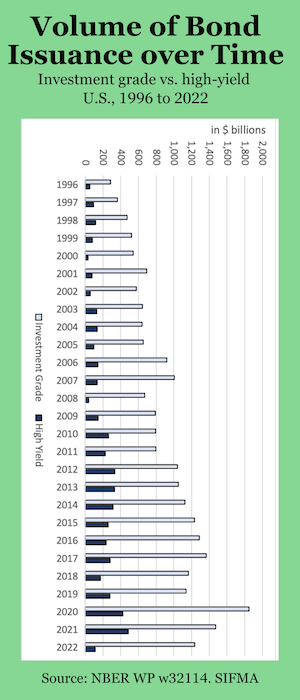Politicians tend to exaggerate. Take, for example, this statement from the new “Lib-Con” coalition now governing Great Britain: “We agree to end the rules requiring compulsory annuitisation at 75.”
That sounds as if the UK government will no longer force its senior citizens to use their “pension pots”—i.e., tax-deferred retirement savings—to buy annuities. If true, the change would signify a monumental reversal of British pension policy.
But wait. Ian Naismith, the head of pensions at the touchingly named Scottish Widows insurance company, offered clarification. “There is currently no rule in the UK requiring compulsory annuitization at 75,” he told MoneyMarketing, a UK e-publication. (My inconsistent spelling of annuitisation is intentional. Bear with me.)
Here’s the spin-free story: the new UK government favors changing the current pension rules, which offer pensioners few if any attractive alternatives to annuitization, to a still-fluid set of new rules that allows choice and flexibility.
As an American writing from Britain, it looks to me like the U.S. and U.K. governments are moving in opposite directions on retirement policy these days. But they’re heading toward each other, not away.
Ironically, if the new U.K. government encourages annuity usage less and the Obama administration follows through on signs that it wants to encourage them more, the two retirement policies could end up looking a lot alike.
Anger at ageism
Strictly speaking, the current UK rules do not require annuitisation of tax-deferred retirement savings by age 75. Under current regulations, a person who has saved for retirement through a “tax-favored pension scheme” can take up to 25% of the account value as a lump sum at retirement, tax-free for all but the very wealthy. After that, the tax laws strongly encourage him or her to buy one or more annuities from private insurance companies with the balance of the money by age 75.
“Strongly encourage” stops just short of “require.” Since 2006, U.K. retirees have in fact had a non-annuity option. The so-called Alternatively Secured Pension (ASP) allows individuals to take systematic withdrawals from their savings instead of buying an annuity. But the ASP’s withdrawal rules are complicated and restrictive and any undistributed funds are heavily taxed at death.
But the ASP option never satisfied the U.K.’s anti-annuitization forces. Many U.K. pensioners resent the government’s assumption that, once they reach 75, they can’t be trusted to manage their own finances, so they must hand their wealth to an insurance company in return for a paltry monthly allowance.
Many feel that the whole U.K. pension regime is just a game for the benefit of the insurance companies. They feel forced into what they perceive as a gamble that they’re likely to lose by dying young. Financial advisors, who naturally believe they can manage the money better than the insurers, have encouraged that view.
The fact that annuity payout rates are at all-time lows only weakens the case for annuities. Pension industry expert Dr. Ros Altmann notes that, thanks to lower interest rates and rising life expectancies, £20,000 (about $30,000) would have purchased an income of £60 a week in 1990. By 2000, it bought only £35 a week and today it buys just £25.
New policy directions
So where is U.K. pension policy headed? According to Naismith of Scottish Widows, the simplest change would be to raise the current annuitisation age to 80 or 85. Another approach would be to leave the limit at age 75, but make the ASP more flexible and subject to a less onerous tax at death.
An unlikely third possibility would be not to call for annuitization at all, which would be tantamount to removing the minimum distribution requirements in the U.S. Most Britons would reject that as a giveaway to the rich, however.
A more complex alternative would be to copy the Irish system, which allows pensioners to spend their tax-deferred savings as they please as long as they buy enough guaranteed income to keep themselves above the poverty line. The eventual outcome will likely combine elements of all the above.
In the U.S., of course, the rules are very different. Our 401(k)s and other tax-favored retirement plans have required minimum distribution rules (RMD) instead of compulsory annuitisation. In practice, very few 401(k) plans even offer in-plan annuities.
But the Obama administration seems to want to encourage annuitization. The Departments of Labor and Treasury recently issued a Request for Information (RFI) regarding “Lifetime Income Options for Participants and Beneficiaries in Retirement Plans.” Question 13 asked:
“Should some form of lifetime income distribution option be required for defined contribution plans? If so, should that option be the default distribution option, and should it apply to the entire account balance? To what extent would such a requirement encourage or discourage plan sponsorship?”
Treasury and the DOL did not ask whether participants should be required to annuitize, only whether defined contribution plans should be required to offer annuity options.
More than 700 individuals and businesses responded to the RFI. The responses to question 13 tended to match the vested interests of the respondents. Manufacturers and marketers of retirement income products tended to favor annuity options. Manufacturers and marketers of investment products tended to favor target date funds over annuities.
Mid-Atlantic convergence
With the U.K. government about to relax annuitisation rules and the U.S. government eager to encourage lifetime income options, the two systems may begin to resemble each other. That’s not only possible, but likely.
I would expect U.K. policy to change faster than U.S. policy. The tendency in the UK is to act quickly when changing laws, rules, and regulations, and then correct mistakes or unintended consequences later. (The UK recently installed a new prime minister and cabinet in less than 24 hours!)
By contrast, the pace of legislative change in the U.S. is glacial. The text of U.S. laws and regulations tends to be voluminous and painstakingly detailed. This phenomenon may reflect the higher proportion of lawyers in Washington. I would expect the outcome in the U.S. to provide more options for individual choice and less direction from government.
The British tend to tolerate government involvement when it seems practical; in the U.S., there’s a deep inclination to “keep the government out of people’s lives.” (It stems from an historic disagreement with a certain King George III.)
Regardless of how pension policy evolves, it would be nice if the British and the Americans could agree on the proper spelling of the word that describes the conversion of savings to income. Should it be annuitization (U.S. style) or annuitisation (U.K. style)? Or maybe, as the Microsoft Word spell-checker seems to think, there’s no such word at all.
© 2010 RIJ Publishing. All rights reserved.


